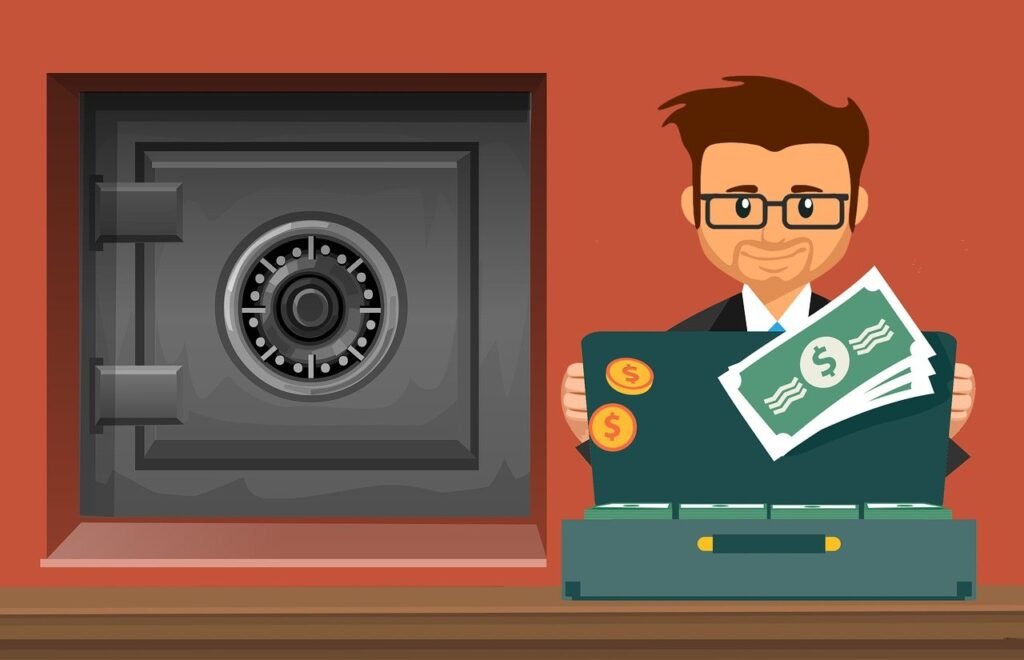What do you think happens to your team when a liability claim comes into play? Is it just a legal issue, or does it ripple throughout your organization, affecting morale and productivity? You might be surprised to find out how significantly a situation like this can impact your employees’ emotional well-being.
Managing such emotional repercussions requires not only awareness but also adaptive strategies to facilitate recovery and maintain a healthy work environment. Let’s take a closer look at the dynamics of liability claims and how they influence your team.
Understanding Liability Claims and Their Emotional Impact
Liability claims, particularly those involving professional errors or omissions, can quickly spiral into anxiety-laden situations for everyone involved. It’s not just about the financial ramifications; it’s about trust, reputation, and personal accountability. When a company faces a claim, employees may feel uncertain and fearful about their own roles and the potential consequences.
The Nature of Emotional Responses
People tend to react emotionally to liability claims in various ways. Some common responses include:
- Fear of Job Security: Employees may worry that claims could lead to layoffs or downsizing.
- Stress and Anxiety: The uncertainty surrounding claims can lead to a heightened sense of stress, making it hard for teams to focus on their tasks.
- Decreased Morale: When a company faces significant challenges, employees might feel demotivated, leading to lower productivity levels.
Acknowledging these emotions is crucial. Create an open line for communication so that your team feels supported and validated.
The Role of Leadership During Crises
As a leader, your actions and reactions during a liability claim can set the tone for how your team copes with the situation. It’s essential to demonstrate strong, empathetic leadership to help guide your team through this tumultuous period.
Emphasizing Transparent Communication
Effective communication can make a world of difference. Here are some tips to keep in mind:
-
Be Honest:
- Share what you know about the liability claim without running the risk of legal repercussions. Transparency builds trust.
-
Keep Everyone Updated:
- Regularly update your team on the status of the claim. This will help alleviate anxiety and foster a sense of stability.
-
Invite Conversations:
- Encourage your team to voice their concerns and feelings. This creates a supportive environment where they feel heard.
Offering Emotional Support
Beyond communication, offering emotional support is critical. Consider implementing measures such as:
- Access to Counseling Services: Providing resources for mental health can show your team that you care about their well-being.
- Workshops on Stress Management: Conducting workshops to address stress management techniques can empower employees to handle stress constructively.

Building a Culture of Resilience
Resilience is vital during challenging times. Cultivating a resilient workforce can not only help your team navigate through the fallout of a liability claim but also better prepare them for any future challenges.
Encouraging Team Collaboration
Fostering a cooperative environment will enhance your team’s ability to rally around one another during tough times.
- Team-building Activities: Engage in activities that reinforce teamwork and camaraderie.
- Peer Support Systems: Create an initiative where teams check in on each other regularly. This builds strong interpersonal relationships.
Fostering a Growth Mindset
A growth mindset allows employees to see challenges as opportunities for learning and development. You can encourage this by:
- Promoting Continuous Learning: Encourage employees to seek development opportunities that can help them manage stress and adapt to change.
- Recognizing Efforts: Acknowledge individuals and teams who demonstrate resilience, reinforcing the idea that setbacks can be overcome.
Financial Implications of Liability Claims
Liability claims do not just leave emotional turmoil in their wake; they can also negatively affect a company’s financial standing. Understanding the extent of this impact is crucial for your recovery strategy.
Costs Associated with Claims
Liability claims can entail various costs, including:
| Cost Category | Description |
|---|---|
| Legal Fees | Expenses related to hiring legal representation. |
| Settlements and Judgments | Potential payouts, which can severely impact financial stability. |
| Increased Insurance Premiums | Following a claim, your premiums may rise, affecting your budget. |
| Loss of Business Opportunities | Reputation damage may lead to loss of clients or contracts. |
These costs serve as a wakeup call, highlighting the importance of managing your company’s liability appropriately.
Mitigating Financial Risks
Establishing strong risk management practices can considerably lessen the severity of financial impacts. Strategies include:
- Regular Risk Assessments: Periodically evaluate your practices and potential vulnerabilities.
- Professional Liability Insurance: Ensure that your business is adequately covered for various risks associated with potential claims.

Handling Claims Effectively
When navigating a liability claim, being prepared with a robust plan can ease the emotional toll such a situation can impose on your team.
A Step-by-Step Guide to Filing a Claim
Here’s how you can streamline the claims process:
-
Document Everything:
- Gather all relevant documentation promptly. This includes contracts, communications, and any other pertinent information that can substantiate your position.
-
Notify Your Insurer:
- Contact your insurance company as soon as you become aware of a potential claim to initiate the process.
-
Consult with Legal Counsel:
- Engage with legal professionals specialized in handling liability claims to guide you through the nuances of the claims process.
-
Stay Communicative:
- Keep the lines of communication open with all parties involved, including your employees, to alleviate stress and misinformation.
Tips for Negotiating
Negotiation can play a crucial role in the claims process, particularly regarding settlements. Consider the following:
- Stay Calm and Collected: Your demeanor can significantly affect negotiations. Approach discussions with a level head.
- Know Your Worth: Be informed about your coverage and the potential claim, which can strengthen your negotiating position.
- Seek Win-Win Solutions: Aim for outcomes that are beneficial for both parties involved, which can foster goodwill.
Educating Your Team About Liability Risks
Have you considered how education can empower your team? Understanding the fundamentals of liability can equip your employees to recognize risks before they escalate into claims.
Training Programs
Implement training sessions to cover the essential aspects of liability claims, including:
- Defining Liability Types: Educate your team about different types of liability (like professional liability or general liability) to foster awareness.
- Risk Identification: Enable employees to identify risks in their daily work, allowing them to take proactive steps to mitigate them.
Creating a Culture of Risk Awareness
Incorporate risk awareness into your workplace culture by:
- Regular Discussions: Make it a practice to discuss liability topics during team meetings or company forums maintaining awareness.
- Incentivize Responsibility: Create a system where employees receive recognition for identifying and mitigating risks.

Preparing for Future Claims
Adapting and learning from past experiences is the best way to prepare for future challenges. Your team should be equipped not just to respond to claims but to navigate the emotional aftermath.
Developing Comprehensive Incident Response Plans
Having a solid response plan in place is essential. Here’s a basic framework:
- Assessment: Determine the scale and nature of the incident promptly.
- Communication: Ensure that everyone involved knows their roles in managing the situation.
- Evaluation: Post-incident, evaluate the responses and outcomes to learn from the experience.
Importance of Documentation
Documenting all procedures and findings during claims responses serves several purposes:
- Legal Protection: Clear records can protect your business during disputes.
- Learning Opportunities: Deconstructing the process can reveal areas for improvement in both response and training.
The Psychological Aspect of Navigating Claims
Do you realize that the psychological effects of managing liability claims can be as significant as the legal or financial aspects? Understanding this can pave the way for a compassionate workplace.
Addressing Mental Health Concerns
Provide your team with tools and resources to tackle mental health challenges:
- Workshops: Host workshops centered around mental well-being and stress relief during challenging times.
- Support Networks: Create a network of peer support where employees can share experiences and coping strategies.
The Impact of Leadership on Team Well-Being
The tone set by leadership can significantly influence the emotional landscape of the team:
- Lead by Example: Demonstrate resilience and positivity in the face of adversity.
- Practice Empathy: Display genuine concern for employees’ feelings and struggles.

Conclusion
In summary, managing the emotional impact of a liability claim on your team goes beyond mitigating the legal and financial ramifications. It involves creating a supportive environment that encourages open communication, resilience, and ongoing education about risks. By being proactive, you can empower your team to navigate the complexities of liability claims while maintaining a positive workplace culture.
Your actions can pave the way for recovery and promote a sense of unity, moving your organization forward amid challenging circumstances. Remember, through understanding and preparedness, you can transform potential setbacks into opportunities for growth and learning.
